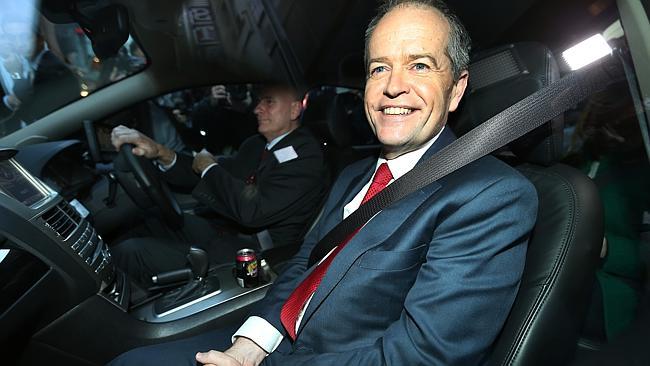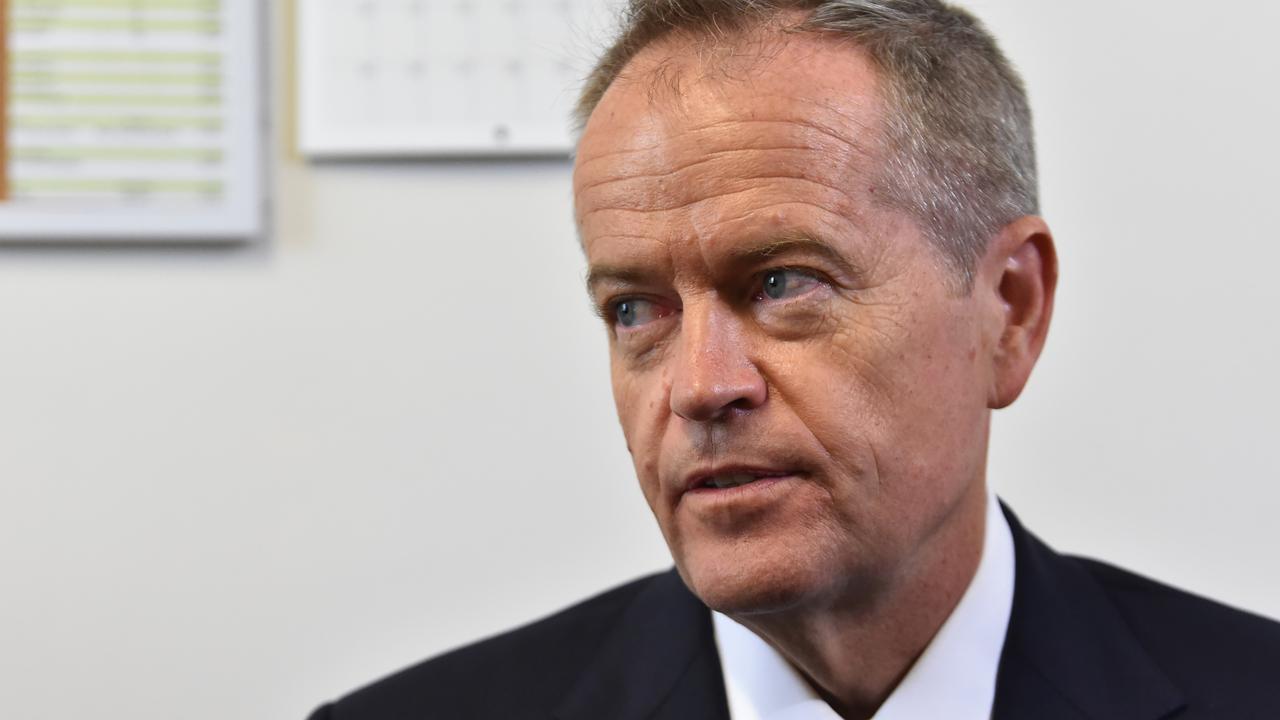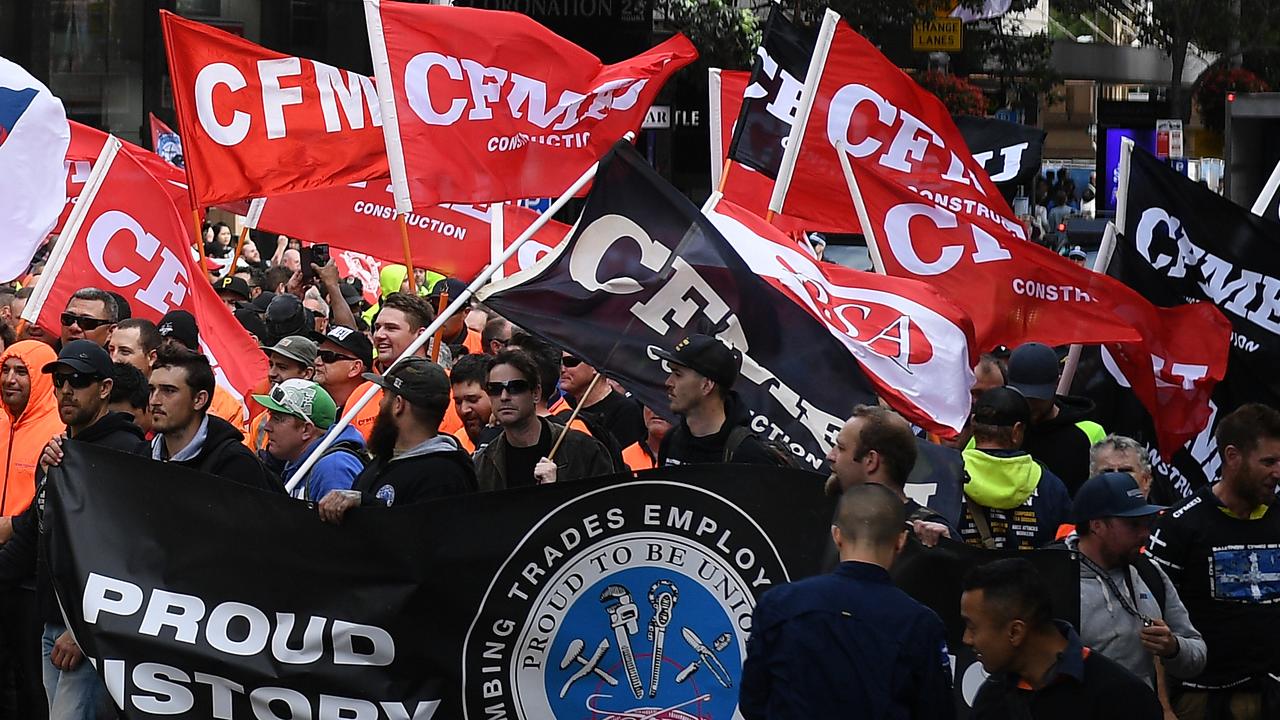Donation and union deal dent Bill Shorten
Bill Shorten has come under intense pressure over his dealings with two Victorian companies when he was head of the AWU.

Bill Shorten has come under intense pressure over his dealings with two Victorian companies when he was head of the Australian Workers Union, admitting a failure to declare a $40,000 donation to his own political campaign and that low-paid cleaners would have been “vastly better off” without a deal his union negotiated for them.
Appearing at the royal commission into trade union corruption yesterday, Mr Shorten made a series of unexpected admissions, including confirming that he hired Young Labor member Lance Wilson to work on his 2007 election campaign, but invoiced most of the cost of the salary to Melbourne business Unibilt in what amounted to a political donation that was subsequently not declared.
Mr Shorten told the commission he took “ultimate responsibility” for the failed declaration, which was corrected only in the past week.
Under rapid questioning by counsel assisting the commission, Jeremy Stoljar, Mr Shorten was also forced to confirm workers would have been “vastly better off” without a deal that the AWU negotiated with cleaning business Cleanevent in 2006, when Mr Shorten was union secretary, and that the deal was of “no real benefit” to workers.
The admission was elicited by Mr Stoljar when Mr Shorten was asked if he supported the AWU’s application to the Fair Work Commission last month to terminate the Cleanevent deal.
The admission stood in stark contrast to Mr Shorten’s unequivocal claim less than four weeks ago that “I can guarantee, about any of the matters, that we always improved workers’ conditions, full stop”.
Pressed about his failure to declare to the electoral commission the donation from Unibilt that amounted to roughly $40,000 in salary for Mr Wilson, Mr Shorten told the commission he took “ultimate responsibility”, before admitting he had hurriedly declared the donation in recent days.
The declaration to the electoral authorities was “within the last 144 hours or last Friday or Monday or Tuesday”, Mr Shorten said.
“What I did, once I’d seen all the royal commission papers, I’ve gone back … sought (legal) advice, worked out what needed to be done and I’ve now completed that.
“ I would also say, and it’s not in the matter of an excuse, but periodically campaigns do update their information and political parties do.”
Mr Shorten swore Unibilt sought nothing in return from the AWU for its donation, despite the timing of the arrangement; Mr Shorten struck the deal for Unibilt boss Ted Lockyer to pay Mr Wilson’s wages while the AWU was poised to restart negotiations with Unibilt over an enterprise bargaining agreement for workers hired by the firm, which was due to expire in late 2007.
Mr Shorten was also asked by Mr Stoljar to justify the records referring to Mr Wilson as a “research officer” for Unibilt rather than as Mr Shorten’s campaign director the year he entered parliament. Describing Mr Wilson as a member of Mr Shorten’s staff would have been a “true and accurate” way to describe matters, Mr Stoljar said. “Why not have an arrangement with Unibilt which clearly states that Lance Wilson would be working as your campaign director, and that they would be paying his wages,” Mr Stoljar asked Mr Shorten.
“Yes, I think that would have been an easier way to describe matters, absolutely, I agree,” Mr Shorten replied.
“It would have been a true and accurate way to describe matters?” Mr Stoljar asked.
Mr Shorten said: “The truth is Mr Wilson was working for me, Unibilt knew that, the union knew that, my campaign knew that.”
Furthermore, Mr Stoljar disputed that Mr Wilson worked more than 90 hours for Mr Shorten in one month in 2007, as set out in an invoice to Unibilt from the AWU. Mr Wilson later spent three years working as an adviser in the office of Mr Shorten as he rose to become a minister in the Labor government. Unibilt went into liquidation, and the commission heard the company traded while insolvent from 2008.
Mr Shorten said he could not account for the invoice to Unibilt, which he did not write. He defended the EBA he signed with Unibilt and the principles of taking corporate donations.
Asked if he was “using your position as national secretary to gain an advantage to yourself”, Mr Shorten replied: “Absolutely not. The previous EBA was a good EBA. These are ... excellent industrial conditions.”
He added: “The idea ... that it is untoward to raise money for election campaigns ... what that does is that assumes that whenever there is a donation in our electoral system, by anyone, that all other relationships and transactions must immediately be cast into doubt. That is not right and that is not how we operated at the union.”
On the failure to disclose Unibilt’s donation, he accused Tony Abbott of doing the same. “I acknowledge that we made an incomplete disclosure in terms of the document, but it is not unusual for members of parliament on both sides of politics to file these individual candidate returns and then give all the information to the head office of the political party for them to send in the information,” Mr Shorten said.
Presented with an analysis of wages paid to Cleanevent that the company was knowingly underpaying its employees, Mr Shorten told the commission the company had not been “open” with him. “I’m quite frustrated when I read this that I don’t believe I was treated with the openness by parts of the company.”
The commission heard Mr Shorten discussed arrangements to attend the Derby Day Spring Carnival races in Melbourne with Cleanevent founder and chief executive Craig Lovett in 2006.
In its damning submission to the Fair Work Commission, read at the hearing yesterday, the AWU said there was “no real benefit” to the Cleanevent EBA “other than the purpose it is currently serving which is to deny employees access to penalty rates”.
Mr Shorten said he agreed with the submission, but explained the Cleanevent deal, first sealed in 1998 and extended twice in 2004 and 2006, was never “designed to last nine years”.
In the final questions before the hearing wound up, Mr Stoljar pursued Mr Shorten over a statutory declaration from another union official swearing the Cleanevent deal was fair.
Mr Shorten agreed the statutory declaration had “simply not been answered fully and completely or properly”.
However, he said his job was “to make sure people were getting pay raises and there are clearly pay rises in this agreement”.
“I rely on the advice of my officials in terms of what the agreements contain and ... the workforce here voted for the agreement,” he said.
Greg Combet, the former Labor minister who attended the commission, said after the hearing that Mr Shorten had “acquitted himself well”. “I received donations from business and from unions, from members of the community when I stood for parliament in 2007, and that contributed to the payment of the wages of people who worked on my campaign,” Mr Combet said.
“When I was in parliament, I think Tony Abbott overlooked a declaration for some suits that he’d been donated. It happens quite often and, as Mr Shorten said in his evidence, when it comes to the attention of the particular person in politics they make an update to their declarations and that’s what happened here.”
Mr Shorten had been scheduled to testify at the commission later in the year, but asked to bring forward his appearance to answer allegations in the public domain such as the Cleanevent matter and deals regarding construction firms Winslow, Thiess John Holland and labour hire company Oneforce.



